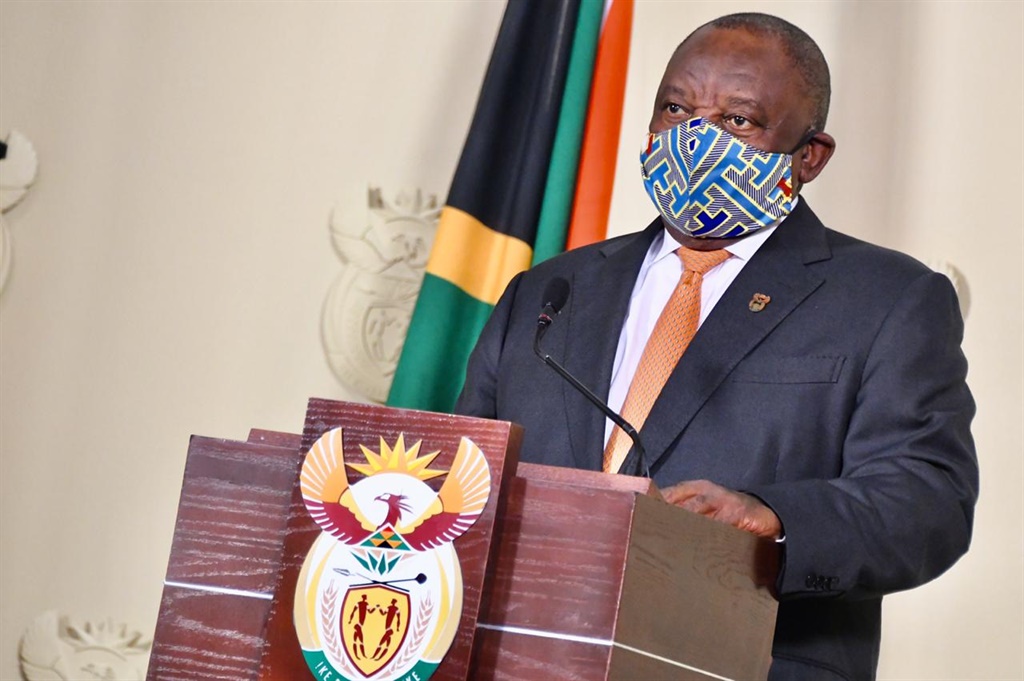
Are you, dear reader, stupid? Surely not. And while you might think many other people are, virtually every adult without a serious mental handicap reading this right now is thinking exactly the same thing.
Government’s prohibition of so-called fake news surrounding the Covid-19 coronavirus pandemic, and the response to it, infantilises all South Africans and unjustifiably positions itself as a guarantor of accuracy. We buy into this deluded notion at our own peril.
It is surprising that increasing numbers of people, who would ordinarily be sceptical about exercises of government power, have embraced the fake news paranoia and want government to actively regulate what may and may not be expressed in public. It undermines the culture of a vigilant citizenry and enables oppressive, paternalistic governance.
As adults in an era of virtually unlimited information, we cannot abdicate our own individual responsibility to judge the veracity of true or fake news. This is not a responsibility we should feel comfortable about delegating to disincentivised petty tyrants who simply count the seconds before they can go home and spend our money.
It makes no sense for us to presume that government has the necessary expertise and insight to judge whether something is true or fake when governments are by far some of the biggest peddlers of lies in any society.
One wonders why President Cyril Ramaphosa was not arrested after it became apparent that his assurance that cigarette sales would resume was itself fake news. Section 1(c) of the Constitution commits South Africa to strict observance of the rule of law, which requires the same legal treatment of both governed and governor.
There is simply too much information circulating in society for any centralised body to be entrusted with deciding its accuracy. Instead, we must rely on the decentralised gatekeeping network known as “the market” to assist us in judging what is true and what is false. This assistance can take the form of fact-checking and quality assurance associations and organisations around the world which certify whether something is what it claims to be or not. Even then, we should come to our own conclusions.
John Stuart Mill, one of the intellectual pioneers of the free society most of us today inhabit, wrote poetically in On Liberty that:
“If all mankind minus one were of one opinion and only one person were of the contrary opinion, mankind would be no more justified in silencing that one person than he, if he had the power, would be justified in silencing mankind.”
Silencing critics
Mill went on to criticise the silencing of expression as an “evil” that robs humanity “of the opportunity of exchanging error for truth”. Even if the expression is demonstrably false, society loses an opportunity to clearly perceive a “livelier impression of truth”, which is “produced by its collision with error”. In short, sunlight is the best disinfectant.
But Mill, often identified with utilitarianism, was making a broader, principled case as well. He wrote that the only reason government could employ the coercive force of law against any individual was “to prevent harm to others”. Harm, he hastened to point out, is not the same as “foolish, perverse or wrong”. Instead, harm is when “our fellow creatures” impede us from “framing the plan of our life to suit our own character”.
Common law and the Constitution already make ample provision for punishing those expressions that are, in fact, harmful, and they do not require additional legislation or, at worst, regulations to complement them.
If we do not abide by Mill’s and the Constitution’s formula for guiding government action, we cannot be an open and democratic society, as the Constitution requires.
Section 16(2) of the Constitution is clear that the right to freedom of expression does not extend to “propaganda for war; incitement of imminent violence; advocacy of hatred that is based on race, ethnicity, gender or religion, and that constitutes incitement to cause harm”.
Other than that, government may not limit or regulate expression.
Usually, section 36 of the Constitution (the general limitation of rights provision) is invoked to justify a limitation on a right in the Constitution, but because the specific [section 16(2)] always supersedes the general (section 36), the general limitation provision can only operate on matters of freedom of expression under exceptional circumstances.
Government interference with free expression
This means government must go to extraordinary lengths to justify interfering with expression that does not amount to warmongering, incitement or hate speech. This is how it should be. Free expression is a dearly won right that was denied to most South Africans prior to the adoption of the interim Constitution in 1994.
The fake news paranoia gives rise to ill-considered government policy that will undoubtedly have a deleterious effect on this important liberty.
It does not matter how fake, distasteful, offensive or wrong something is, government has no rightful authority to censor or proscribe it. This does not mean we have to respect or listen to every expression – only that we must tolerate it. We may be just as distasteful and offensive in response to other distasteful and offensive expressions if we want to follow that route. But, as a society, I hope we want to improve the quality of discourse voluntarily and persuasively, rather than through the coercive force of the government and law.
Van Staden is head of legal (policy and research) at the Free Market Foundation. He is pursuing a Master of Laws degree at the University of Pretoria and is author of The Constitution and the Rule of Law: An Introduction (2019). The views expressed in this article are the author’s and are not necessarily shared by the members of the Free Market Foundation




 Publications
Publications
 Partners
Partners









